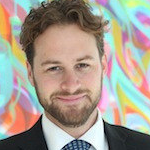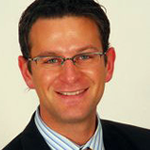A few weeks ago, Rose Caiola and I attended the launch of the Evolution of Medicine Summit. There we met James Maskell, founder of Revive Primary Care and a master at connecting experts in wide-ranging fields. Maskell hosts Functional Forum, The , particularly integrative medicine. The forum presents cutting-edge research and ideas in a new mixed-media format that combines interviews, TED-style talks, videos, music, and audience involvement. I’m certainly not a health professional, but I was definitely interested, especially when I saw that this month’s discussion topic was the Evolution of Brain Health.
The event at NeueHouse started with perhaps the best salad I’ve ever eaten (and as an imperfect vegan, I know quite a bit about salads). It was prepared by Sakara Life, an organic meal delivery company with a thoughtful approach to match their splendid palates. Once the kale and walnuts had been devoured, food continued as the topic of conversation: we watched a TEDEd video about the negative impact sugar has on the brain and learned why sugar is addictive.

Maskell shared news about recent studies and research into brain health, including how anti-depressants are altering brain architecture, the pathway linking high blood pressure and the brain, the astonishing capabilities of turmeric, and how memory loss from Alzheimer’s disease is being reversed. He then introduced the topics for the evening, which included the interpretation of Alzheimer’s disease as Type 3 diabetes, the metabolic connections of the brain, and the correlation between environmental factors and brain health.

Filmmaker, Current TV anchor, and self-proclaimed awe and “wonder junkie” Max Lugavere spoke about his documentary in progress, Bread Head, which debunks misinformation about diet and the brain, and shows how neurodegenerative problems could be metabolic in origin. For Lugavere, it’s personal: as he told the Wall Street Journal, “My mother is 62 and she has memory loss and cognitive difficulty….So when I came across this idea of dementia prevention, it was eye-opening.” He hopes to speak for and to millennials who want to learn as much about their health as they can possibly can.
Maskell introduced keynote speaker Dr. Jay Lombard with this compelling quote: “The macro issue is as important as the molecular ones. What is the macro issue in my opinion? It’s the realization that every neuro-psych issue is fundamentally about disconnectivity. The principle is no less apt at receptor sites than in our relationship to ourselves, our loved ones, and the universe.” Dr. Lombard spoke about the “Third Wave of Biological Psychiatry” and the incredible strides in brain research over the past two decades. He discussed how our mental states affect our biology and how our biological states affect our phenomenology—our consciousness and experience. He’s the founder of Genomind, a personalized medicine company that provides tools for psychiatric clinicians to better understand genetic markers. He’s worked as the chief of Neurology at Bronx Lebanon Hospital, professor of neurology at New York Presbyterian Hospital, clinical instructor of Neurology and Medicine at Albert Einstein College of Medicine, and chief of Neurology at Westchester Square Medical Center and the Brain Behavior Center.
In addition to Dr. Lombard, the panel discussion featured:

Director of the Alzheimer’s Prevention Clinic at Weill Cornell Medical College, Richard Isaacson, MD, who explained that Alzheimer’s disease begins in the brain as early as twenty to thirty years before the first symptom. He advocates a brain-healthy lifestyle and dietary choices at every age, particularly for those with a genetic history of Alzheimer’s.

Psychiatrist and author of Fifty Shades of Kale Drew Ramsey, MD, who knows about much more than my favorite leafy green vegetable. He’s an assistant clinical professor of Psychiatry at Columbia University College of Physicians & Surgeons, and his focus is on the treatment of depression and anxiety with a combination of psychotherapy, lifestyle modification, and psychopharmacology.

Pediatric neurodevelopment specialist Maya Shetreat-Klein, MD, who takes an integrative approach to neurological, behavioral, and cognitive problems. She believes that children can regain health without using medication as the first option. She coined the term “brainmending” to describe the use of a variety of modalities to care for children with the chronic medical problems that often accompany neurological issues, and she emphasized the importance of diet to the brain by saying, “Your gut is the soil in which the brain grows.”
You can watch the entire event here: (Program begins at 8 minutes, 15 seconds.)
There was so much remarkable science discussed at the Functional Forum, I’ll be Googling for days, but there were also some immediately practicable and practical takeaways:
- It’s never too early to pay attention to brain health.
- You can’t eat too much kale.
- Add turmeric and cocoa powder to your diet.
- Mineral water may be valuable for more than mere hydration.
- Exercise tones your mind, not just your abs.
Click here to see Rose’s tips for healthy and happy relationships




1 Comment
amie
Guys! Exercise absolutely improves your brain health and acts as a natural stress reliever and mood booster